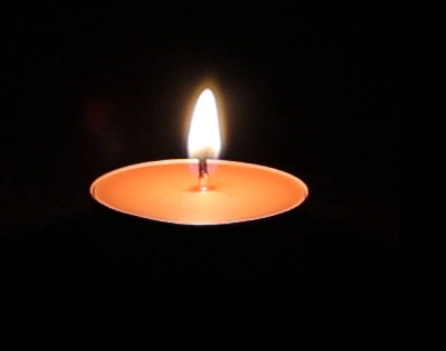
Note: you will need to set aside 35–40 minutes for this time together.
You will need:

Jesus got up from the table, removed his outer garments and, taking a towel, wrapped it round his waist; he then poured water into a basin and began to wash the disciples’ feet and to wipe them with the towel wrapped round his waist.
When he had washed their feet he put on his outer garments and reclined again at the table. He said to them, ‘Do you know what I have done to you? You call me Teacher and Lord, and rightly, for so I am. If I, then, the Teacher and Lord, have washed your feet, you also ought to wash one another’s feet. I have given you an example so that as I have done to you, you also should do.
In the Upper Room, Jesus shows what true love is through the example of washing the feet of his disciples. He demonstrates that real leadership is lived out through acts of service. The other gospel writers tell us that it was in this very same room that Jesus blessed, broke and shared the bread and wine.
At the Last Supper, Jesus washed the feet of the apostles. Jesus demonstrates for us what it means to be a member of the Body of Christ, his Church.
The gift of the Eucharist that Jesus gives us in the Upper Room is the very same gift we receive when we are at Mass.
As Pope Benedict XVI wrote:
In the Eucharist, … Christ makes us come out of ourselves to make us one with him.
When we receive the Body and Blood of Christ at Mass, we’re strengthened by the Eucharist to go out and share the presence of Christ, and our gifts, with all those we meet in our daily lives.
Together, take a few minutes to think about and discuss the following ideas
I wonder why Jesus washed the disciples’ feet.
I wonder what Jesus meant by ‘wash one another’s feet’.
I wonder if you’ve ever let someone ‘wash’ your feet—do something helpful to or for you.
I wonder which is easier: to ‘wash’ or ‘be washed’; to serve or be served.
In your journal, write down two or three of your responses. Try to write one or two sentences that explain what your responses are and what they mean.
The final part of our Mass is the ‘sending out’.
As the bread and wine are blessed and broken for sharing, we too are blessed through our sharing in this one bread and one cup, and we are commanded to go and be builders of community and a source of nourishment for a broken and hungry world.
We go in the name of Christ to continue his work in our world today. The final words of the Mass are ‘Go and announce the Gospel of the Lord’ or ‘Go in peace, glorifying the Lord by your life.’ Notice it is not an invitation—‘Let us go’—but a command: ‘Go!’
This sending out is much more than a goodbye or merely a way of finishing up. It’s a commissioning—it gives us a job to do, and the energy and power to do it, until we are gathered again, until we receive the Body and Blood of Jesus again. It is a command to go out and live what we have just celebrated.
How can you be Jesus’ presence in the world?
At the end of Mass, the priest says:
Service is a work of compassion and a sign of Christian living. Our service is made easier when we understand the importance of receiving the Eucharist as our ‘spiritual food’.
Service is taking the message of Jesus’ love into the world. The Catholic Church looks for ways to live this.
Our Church family has many ways to follow Jesus’ way of serving others.
In our parish, serving others might include:
In our world, the Church serves others by providing:
Can you name any more? Jot them down in your journal.
The food of the Eucharist—the bread and wine, now the Body and Blood of Jesus—strengthens us to be Christlike in the world in a variety of ways but especially through the following.
For example: